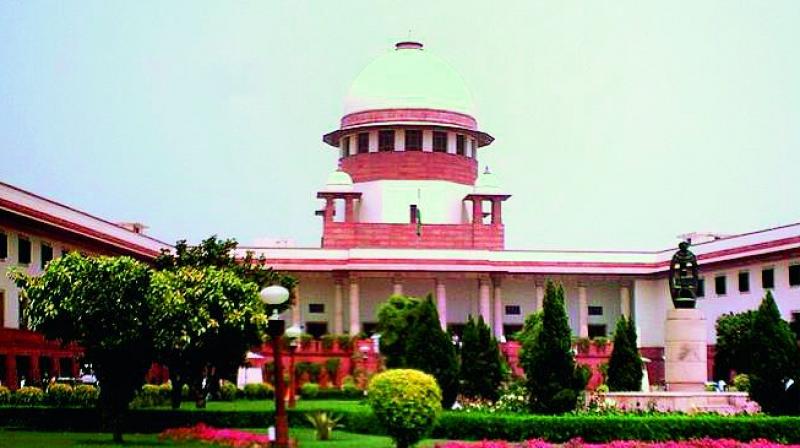Passive euthanasia
We get celebrities to give their take on a current issue each week and lend their perspective to a much-discussed topic.

Late last week, a five judge constitution bench of the Supreme Court held that the right to die with dignity is a part of the right to life, enshrined in Article 21 of the Constitution. The bench has also decided that there’s no requirement of a legislation to legalise passive euthanasia.
We talk to policy makers and doctors and ask them if this is a progressive step by the SC and how it will impact those suffering from debilitating illnesses and opting for passive euthanasia.
‘There is a need for caution’
While the step certainly is a progressive exposition, since it gives a wide interpretation to Article 21, there is a need for caution. This may result in unlawful practises of terminating ones life under the guise of euthanasia. Hence, it is very important to monitor the process and stringent guidelines should be laid down to ensure that it doesn’t get misused. There’s always the threat that it may fall into the wrong hands and become a ‘legal’ killing machine.
‘A psychiatric evaluation needs to be a part of assessment by the board’
The recent Supreme Court decision is a positive step, which upholds a person’s dignity in life and death. However, outside of extreme cases, where the patient is in vegetative state, the details still have to be worked out. What is most important is the patients’ and guardians’ mental state too. It is well known that patients with chronic and terminal illnesses can develop depression. This, in turn, results in an inability to think clearly and can drain you of your will to live. Hence, a psychiatric evaluation needs to be a part of assessment by the board.
‘Patients’ attendants too should have the power to take this call’
While it is a welcome step, I think the patients’ attendants too should have the power to take the call. Terminally ill patients, mostly in their last stages, are in vegetative stage and can’t take a decision of their own. And it gets difficult for the relatives to decide, mainly because of their feelings and what the society will think. The law should actually involve the relatives too, so that they can take a call. There’s a system in the US, where a committee is formed involving the relatives and the doctors to take such a decision. Here, too, it would be good to follow such a procedure.
‘Doctors have a very big responsibility’
When a country decides this step, it is announcing a high level of maturity and responsibility and that is something we need to be careful about. Doctors have a very big responsibility on them, where they will need to exercise a high level of ethics to guide the patient right, as well as making absolutely sure that the disease is indeed terminal. But I agree, this is a progressive, much-needed step.
‘Every doctor has struggled with the dilemma of playing god’
Indian healthcare desperately needed a step like this. Every doctor, more than once in his career, has struggled with the dilemma of playing God. There are several times when patients in a vegetative state, who have zero to 10 per cent chance of recovery, stay in the hospital for years with life-saving measures. Families get economically drained — they sell their lands, houses, and/ or take massive loans to simply meet the cost of the treatment. But there is simply no way we could have done anything.
We are waiting for more guidelines from the Supreme Court. Once they come in, there will be more clarity about the issues surrounding passive euthanasia — for both the doctors and the patients.
‘As doctors, prolonging life should be our motto’
I feel this was needed. I have seen many patients who become brain dead and live a vegetative life just because they are not dying. I think this verdict will help patients with debilitating illnesses. As doctors, prolonging life should be our motto — not just prolonging death and making the patient suffer.

